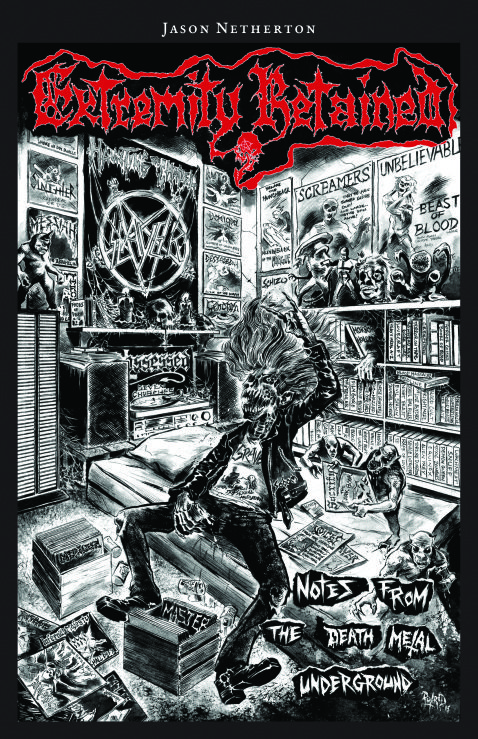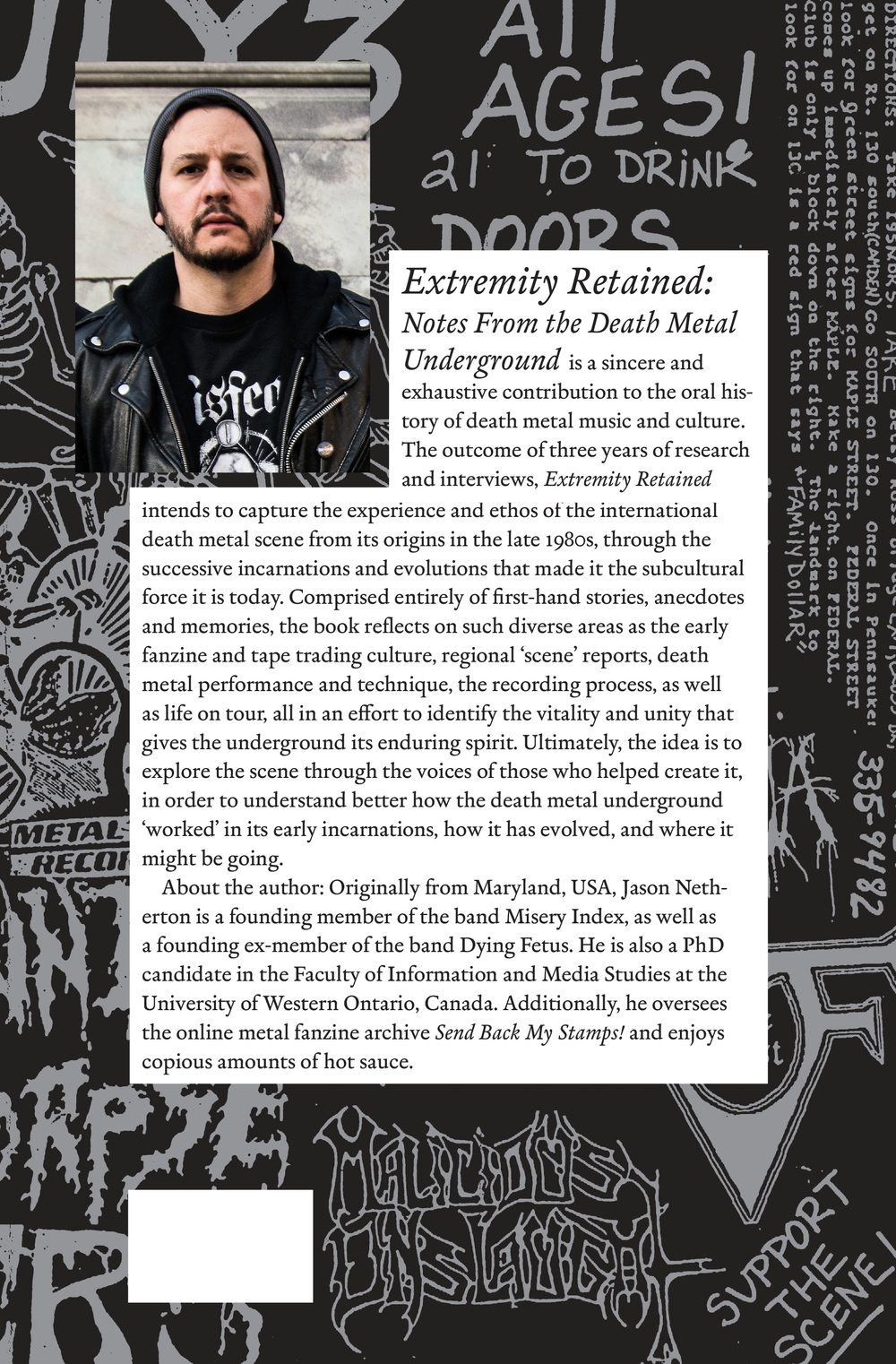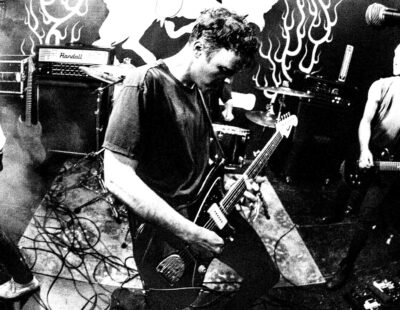I’m not exactly sure where Jason Netherton finds the time and energy to do everything he does, but he does. Most of you are probably familiar with him via Misery Index, a band he formed after his departure from Dying Fetus. However, it doesn’t stop there. Presently, he’s kinda-sorta uprooted from his Maryland home and is living down the highway from yours truly in London, Ontario where he is a PhD candidate in the Faculty of Information and Media Studies at the University of Western Ontario. When he’s not bitchslapping (or genuflecting at – I’m not really sure his thoughts on the matter) the works, ideas and teachings of Marshall McLuhan, Netherton curates the online fanzine archive Send Back My Stamps!. And if that weren’t enough, over the course of the past four or so years, he’s been working on a book about death metal’s past, present and future called Extremity Retained which has just seen release via Handshake Inc. You can check out an excerpt in the June issue of Decibel (available here) and there will definitely be copies making the rounds at Maryland Deathfest later this month. Below, we present a short interview with the author about the genesis of his project and a brief synopsis of the 480-page tome. Oh, and somewhere amid all this, Misery Index also has a new album coming out called The Killing Gods later this month on Season of Mist which is highly recommended as it’s their most diverse work yet. Shit, I want to take a nap after just typing all this out…Take it away, Jason.

“It just sort of happened. If you’ve been on tour a lot, you know there’s a lot of downtime and a lot of times you get these grand ideas while on tour. It’ll be like, “OK, I’m going to do this and that, instead of staring out the window or something.” So, this all started when I was on tour sometime in 2010. There are often times when we’re hanging out backstage or at a festival or everyone’s coming together for something like Maryland Deathfest and everybody’s reminiscing, sharing stories, memories and anecdotes of tours past, experiences or this and that. I just thought there was something interesting about all those sorts of moments that I really liked. When I thought about it, there wasn’t really anything out there for death metal that captured that oral history like the way that some writers and books have done for punk or even almost by extension the way Decibel does with the Hall of Fame. That’s my favourite part of each issue and even if I don’t know the album or am not really a fan, I’ll still read it because there’s something about the oral history that I like to read from the people who actually created it.
So, I bought a MP3 recorder at a Best Buy in Oakland or San Francisco and I just started right there. That night we were hanging out with [guitarist] Paul [Ryan] from Origin and he was the first one. I just whipped out the recorder and he just started telling me stories and memories. And over the next two-and-a-half years, I talked to a little over 100 people. Sometimes, it ended up over email or by a phone conversation and as it went along it just sort of fell into place. It didn’t really have a lot of form or structure at the start, but as it went along you could start to see these themes develop and from there I developed these five categories or sections to break it down into. First, there’s origin stories; like how they first got into death metal or experienced it or came to know the underground. Then, there’s a section kinda like the old scene reports thing. Then, tour stories and what it was like to tour in the late 80s/early 90s and beyond. Then, there’s a studio performance section. The last section is sort of a ‘then and now and where next’ kind of thing and kind of breaks things down beyond just musicians to include fanzine editors and journalists and stuff. The big thread to relate it to media, which is something I’m studying here, is how the subculture, when it started, it created itself and how media was front and centre. Not just the communication through the international postal system and tape trading and fanzine production and all that kind of thing, but also the big shift from analog to digital media and how that upended and changed the death metal underground for better or for worse – some people think for better, but a lot more people think for the worse. The whole idea wasn’t to just get the voices of the A-listers, but also to get different people from different bands and different countries and have a real global voice to it.
Can’t wait a couple weeks until MDF? Purchase a copy here.






